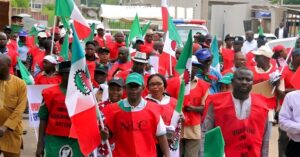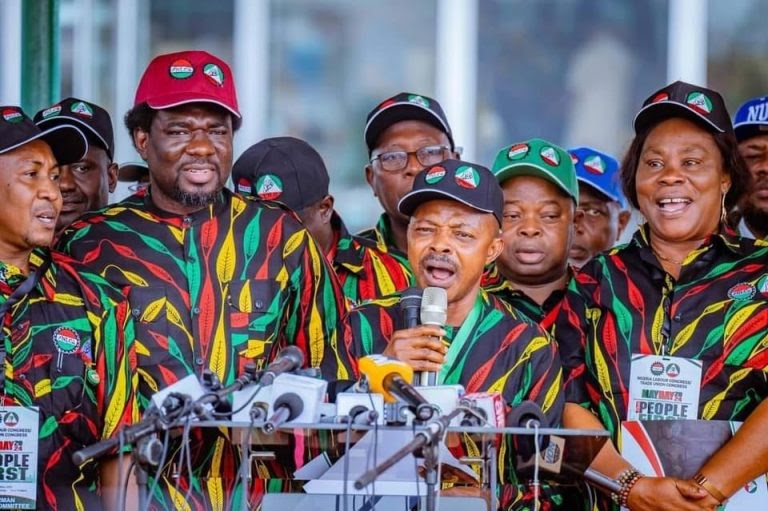The federal government of Nigeria has proposed a new minimum wage of N62,000 for workers, following the rejection of its initial N60,000 offer by the Nigeria Labour Congress (NLC) and the Trade Union Congress (TUC).
Imo State Governor Hope Uzodimma announced the new proposal while speaking to journalists after the tripartite committee negotiation meeting in Abuja on Friday.
The labour unions have also revised their demands, lowering their request to N250,000 from the previous N495,000, which the federal government and private sector deemed unrealistic.
“The committee has formulated a recommendation that will be submitted to the President for further action,” said Mr. Uzodimma, who also chairs the Nigerian Governors’ Forum. He added, “The federal government and the organised private sector have agreed on N62,000, whereas the organised labour is seeking N250,000.”
TUC President Festus Osifo noted that both the federal government and the private sector recommended N62,000 as the minimum wage. “Given the current economic hardship and challenges, we believe N250,000 would be a more appropriate minimum wage,” Osifo stated. “We will finalize a report and forward this position to the President, continuing to push for a sustainable wage in Nigeria.”
This development comes shortly after organised labour suspended a nationwide strike for five days to allow ongoing negotiations with the federal government. The NLC and TUC had previously rejected the administration’s N60,000 proposal, demanding N495,000 in light of economic policies by President Bola Tinubu that led to significant price increases for food and commodities.
Both the government and labour unions agree that the current N30,000 minimum wage is unsustainable under present economic conditions, but reaching consensus on a new figure has been challenging.
The nationwide strike, initiated on June 3, had disrupted various sectors, including banks, airports, public schools, and courts. Although the strike was paused for five days, it was set to resume on Monday, June 10.
During the minimum wage negotiations, state governors also opposed the initial N60,000 proposal, deeming it “unattainable” and “impractical.”



